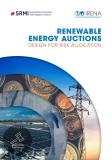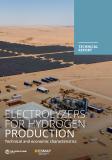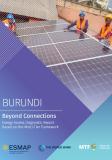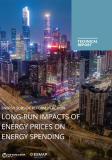Publications
At today’s rate of progress, the world is still not on track to achieve the SDG 7 goals by 2030. Advances have been impeded, particularly in the most vulnerable countries and those that were already lagging.
Innovative policies and technologies continue to emerge and bring benefits to the energy sector, but the impact of the COVID-19 pandemic set progress back in ways that were not foreseen in 2019. Not only is the world not on track to reach SDG 7 under current and planned policies, some targets are even farther away than they were.
Recent improvements in increasing energy access in Africa are being reversed. After declining over the previous six years, the number of people without access to electricity increased in 2020.
At the same time, the perceived risk of lending money to a number of developing countries has increased dramatically, making it more expensive for those countries to raise debt finance for energy technologies and improve energy access.
The outlook looks more positive for renewables and efficiency. Rising prices in 2021 and recovery plans in key economies focused on renewables and efficiency make the outlook for renewables and efficiency stronger than it was a year ago. Recent price spikes and the crisis in Ukraine have also increased uncertainty in global oil and gas markets, putting renewed pressure on net importers to reduce exposure.
Renewables, efficiency, and electrification are likely to play major roles in the policy responses to these events. These responses need to be substantial and reach beyond advanced economies if the world is to achieve the energy-related SDGs.
Getting on track toward meeting SDG 7 depends partly on how governments continue to support clean energy and energy access investments. As policy makers chart the path ahead, it is worth bearing in mind that an energy transition ambitious enough to fulfill SDG 7 can also help meet other social and economic objectives. With holistic policies in place, the energy transition can foster sustainable economic growth, create jobs, and improve welfare.
Press release: Arabic - English - French - Spanish | Infographic | Video | Energy Data and Analytics Hub | Energydata.info



